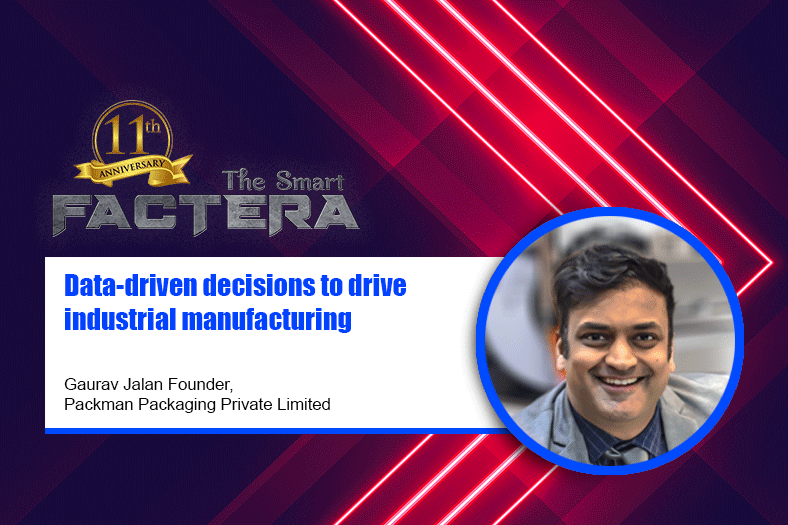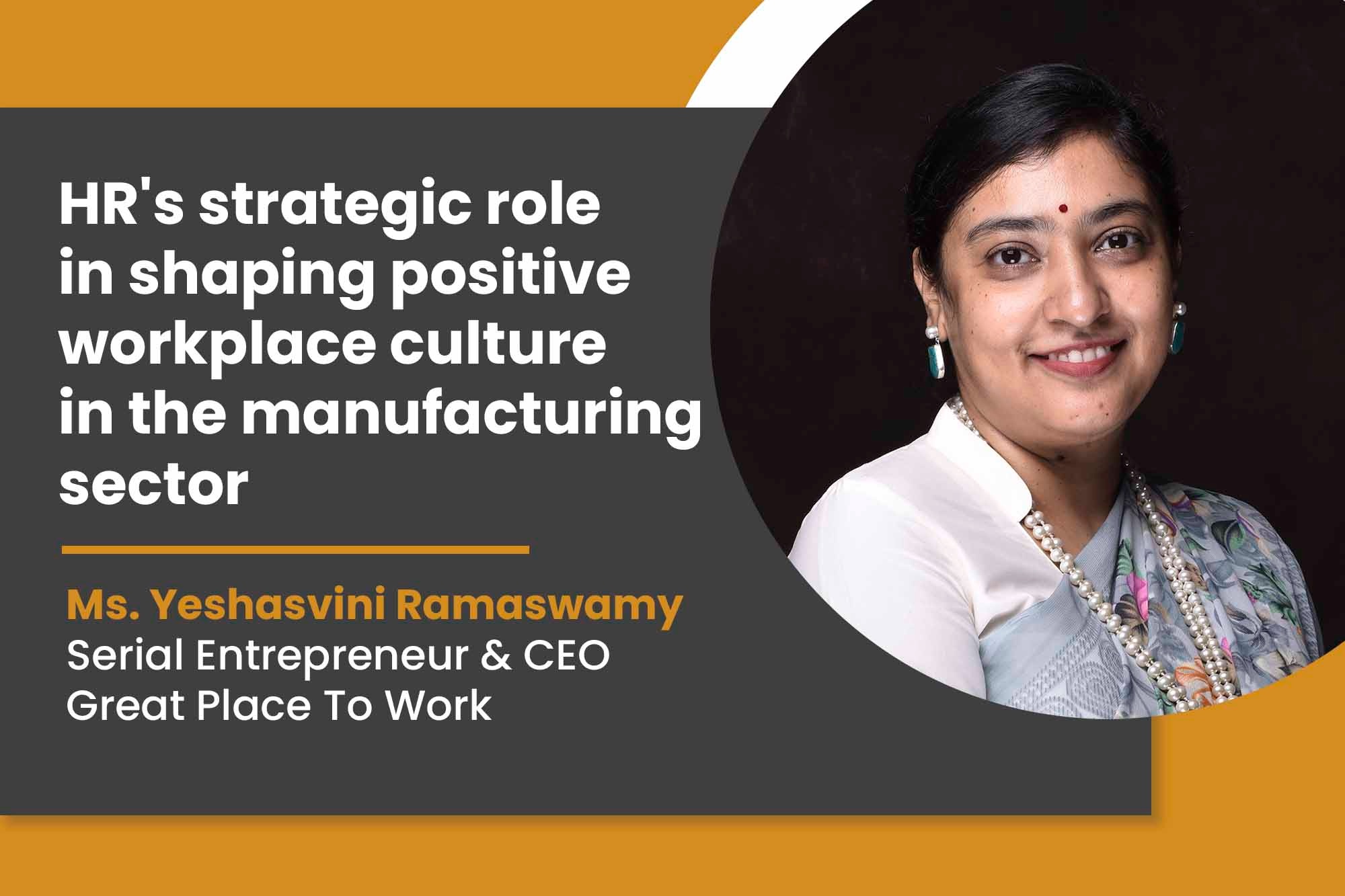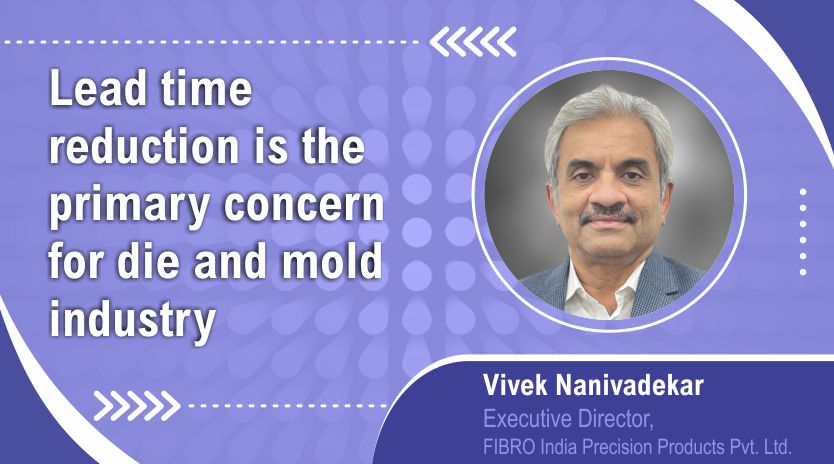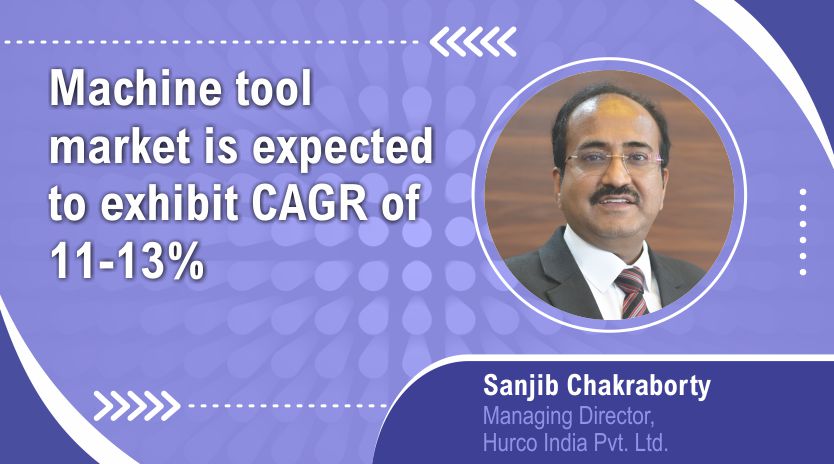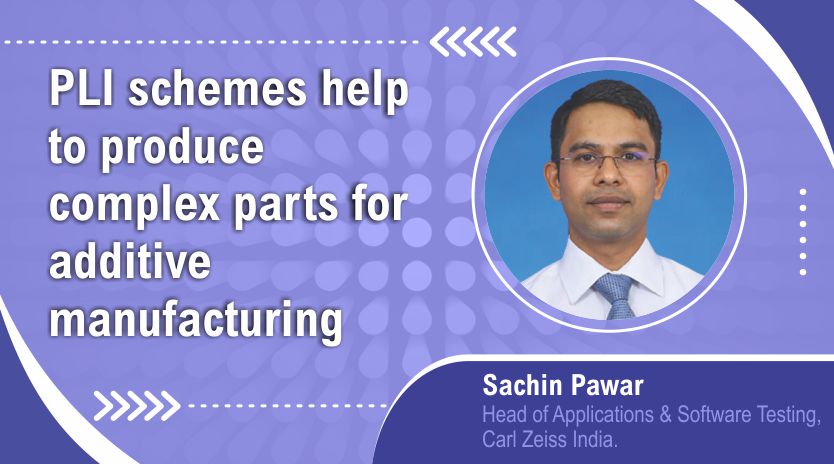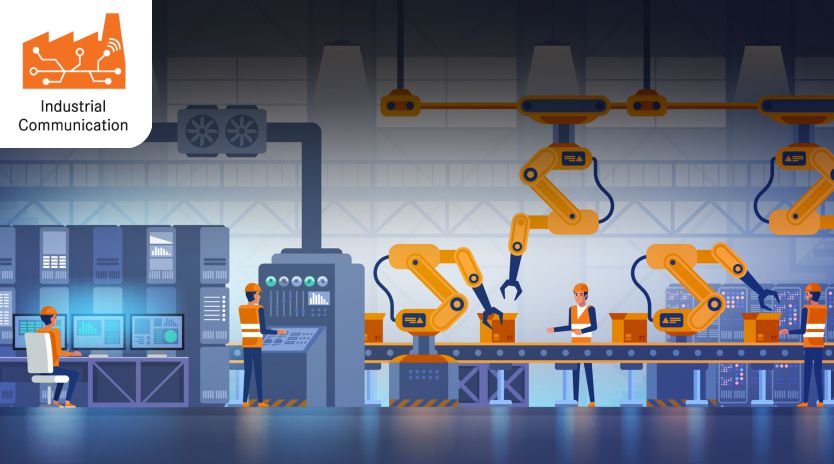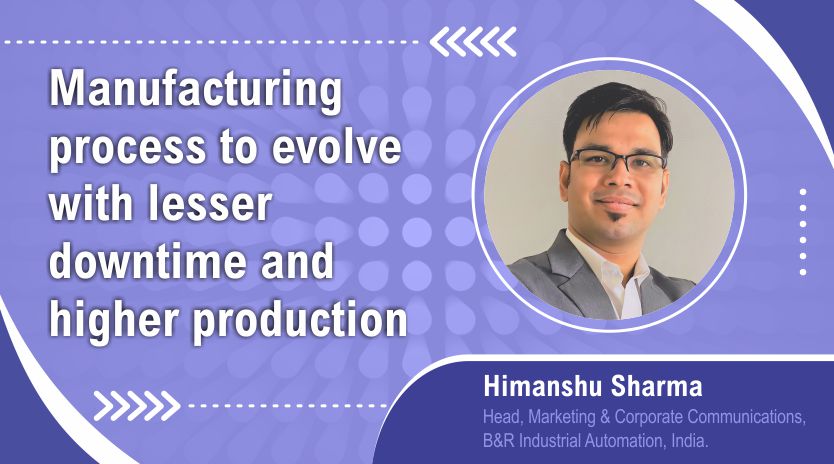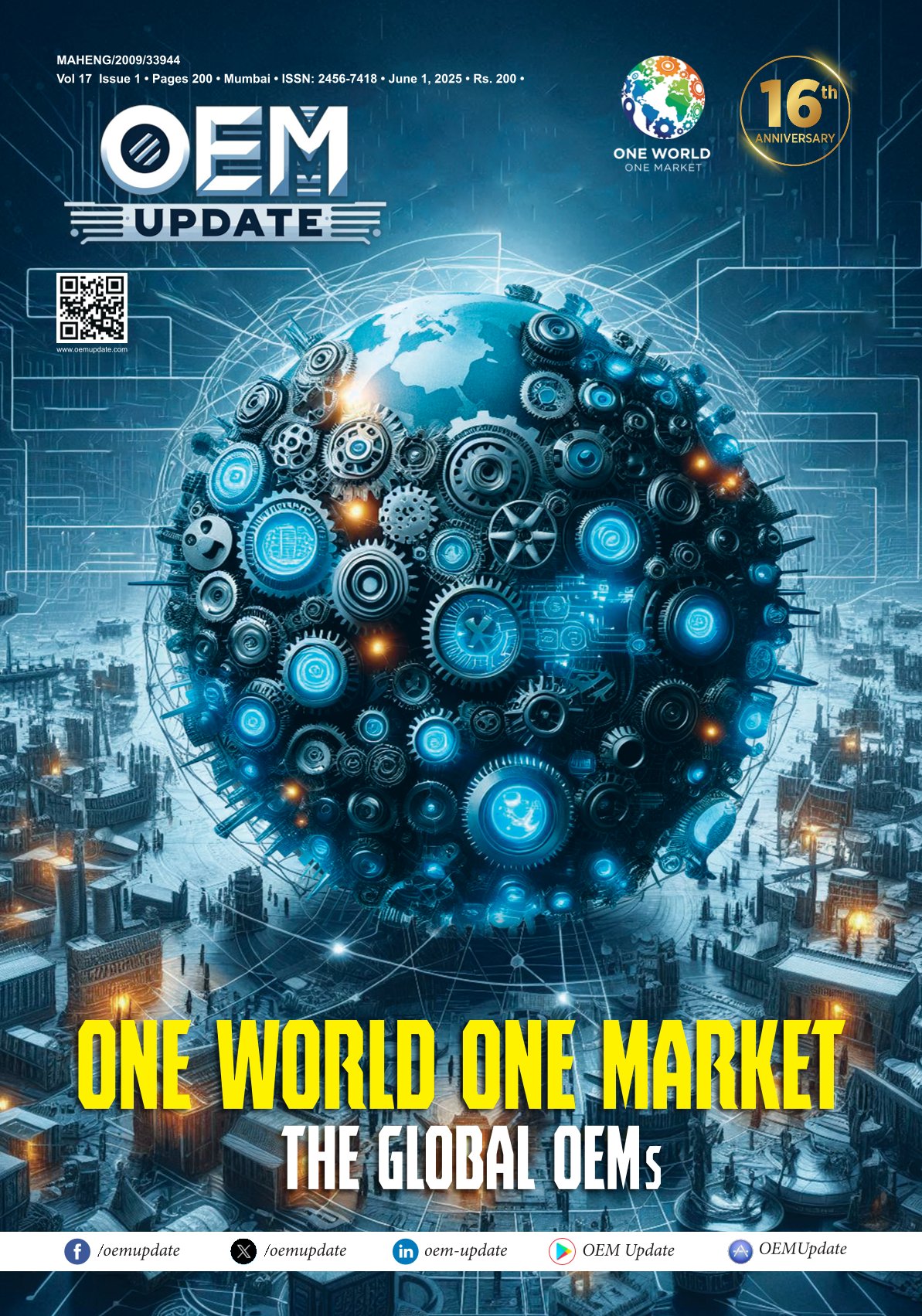Data-driven decisions to drive industrial manufacturing
By OEM Update Editorial June 10, 2020 12:41 pm IST
Industry 4.0 makes large use of the Internet of Things or even Intranet of Things like robots, sensors, and simulation tools that together contribute to the creation of a smart factory.
Gaurav Jalan, Founder, Packman Packaging Private Limited, in an interaction with OEM Update, talks about the industry challenges that are being faced in the course of moving forward with the smart factory concept, such as market evolution, service economy transfer, and sustainable product manufacturing. He also mentions how technology is helping companies to ensure a seamless manufacturing process.
How has your company’s journey been in the adoption of smart factories?
The journey so far has been good. From 2002 to 2020, Packman Packaging has come a long way. Now we are working on smart packaging. Product loss and damage is a repeated issue for brands and manufacturers, not simply because of financial loss, but also damage caused due to potential risks, specifically in counterfeit medication and the use of unauthorised materials. Packaging specialists such as Packman are working towards technologies like radio-frequency identification (RFID) codes, which will be printed directly onto packaging or integrated into it. RFID technology emits identifying signals to a reading gadget, which could be a normal smartphone, making automatic, contactless communication with the package so that buyers and suppliers can determine the current status of their products in a matter of few seconds. This is one aspect Packman is working on. Similarly, sustainable manufacturing, sustainable raw materials, and sustainable packaging are some of those features that Packman has adopted in view of smart factories.
What kind of steps do companies, including MSMEs, need to take for the adoption of smart factories?
Concept 4.0 will be the trend. MSMEs will have initial difficulties but gradually it will be the norm. MSMEs specifically need to adopt the following:
- Information and communication technology (ICT) to digitise information and integrate systems at every stage of product creation and use, including logistics and supply, both inside companies and across company boundaries.
- Cyber-physical systems that use ICTs to check and control physical processes and systems. These will involve embedded sensors, intelligent robots that can configure themselves to suit the instant product to be created or additive manufacturing (3D printing) devices.
- Network communications like wireless and internet technologies that serve to link machines, work products, systems, and people, both within the manufacturing plant and with vendors, suppliers, and distributors. Big data analysis and exploitation, either on the factory floor, or through cloud services.
How have machine learning (ML), artificial intelligence (AI), robotics, automation, and big data been implemented by OEMs to move towards a Connected Enterprise?
A Connected Enterprise not only oversees machines but joins them to all the vital hubs of an organisation and creates real-time functions that enable predictive analytics and deeper insight for your business. This gives businesses a competitive edge because they have the ability to turn that intelligence into action. And together ML, AI, robotic, automation, and big data are a potent force specifically when they are used in tandem by OEMs. Smart manufacturing techniques make use of this data to help you transform your business. Instruments such as artificial intelligence, machine learning, robotics, automation, and big data, when used, create collective analysis, and data from those instruments become the driving force for strategic decisions in manufacturing. And OEMs need to continuously thrive to march further; thus, this compiled effort helps to move toward the Connected Enterprise. This smart data chain lends a secure, decentralised, single source of truth throughout your manufacturing life cycle.
What are the challenges faced by OEMs while transitioning towards smart factories?
Market evolution: The first challenge is the market evolution challenge of moving from product to service economy. Because of loss of margin on hardware, the shift of marching from a product to a service sales approach has become a very critical strategy. In order to increase financial margins and getting closer to the buyer, the idea of the machine as a service must be the ultimate goal.
The service economy transfer: In order to let the shift to a service economy, one needs to reap the benefits that new technology such as IoT and data science can offer. The new technology has now matured to the extent that it is available at an affordable cost, making IoT and data science two essential pillars to support the shift to a service economy.
Assist the organisational model: The next challenge would be to consider the organisational model and the way users are authorised and augmented by lending data to people in multiple levels of an organisation. Lending data in a user-friendly way will eventually increase both knowledge sharing and user performance, assisting organisations to work more efficiently and deliver more value.Sustainable product generation and traceability: The fourth challenge will be one of sustainable production and traceability. Because the market and customer demands are becoming more complex, their move from mass production to mass customisation has already forged ahead, and one needs to be able to produce in an environment that is eco-friendly and let waste at a minimum. The key is to handle more information and data sets to improve versatility and traceability.
What kind of technological advancements can we expect with respect to smart manufacturing in the coming years?
Some of the technological advancements, especially in the Indian context, would be the following:
Data analytics: Data provides life into modern technologies, and it is a must to have real-time data to be fed into these technologies straight from artificial intelligence to augmented reality. Data analytics helps in organising and managing the data and making it actionable and ready for actual use. In Industry 4.0, data analytics is what fuels and is crucial at every stage, from ideation to prototyping, actual manufacturing/production to maintenance.
Cloud computing: Cloud computing facilities for every other data-relied technology make required data promptly available for use, irrespective of the area. With cloud computing, storage, access, and management of data across various locations become easy. Cloud environment allows data collaboration and exchange, which assists in effectively driving all the processes straight from supply chain to maintenance.
IoT: The Internet of Things or IoT is so important to Industry 4.0 that it is mostly used interchangeably and is also combined to be known as the Industrial Internet of Things (IIoT). Industry 4.0 makes large use of the Internet of Things or even Intranet of Things like robots, sensors, and simulation tools that together contribute to the creation of a smart factory. In a smart factory, various entities such as machines, systems, as well as humans communicate and coordinate seamlessly to coordinate and track the production progress along the supply line.
Cookie Consent
We use cookies to personalize your experience. By continuing to visit this website you agree to our Terms & Conditions, Privacy Policy and Cookie Policy.



